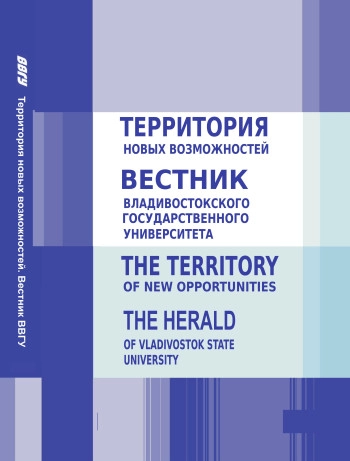CSCSTI 06.00
Russian Classification of Professions by Education 38.00.00
Global transformation processes in society, science, and politics require meeting new chal- lenges. In modern conditions, managers in the field of education need not only have fundamental profes- sional knowledge, but also be leaders who are able to withstand emerging challenges and have highly de- veloped managerial skills. Therefore, various aspects of assessing the managerial competencies of candidates for the personnel reserve of managers in the field of education are very relevant. The objectives of the article are to analyze empirical data of assessment procedure made to evaluate the managerial competencies of can- didates for the Personnel Reserve in the education system of the Moscow region, to identify significant correla- tions between key competencies for the formation of development programs, and also to update the compe- tency model of the head of an educational organization which is currently in use. To process the data, statistic methods, as well as paired correlation analysis, were used. Competencies both developed at a high level and requiring targeted strengthening in most candidates are identified, significant interrelations of the competen- cies under study are highlighted, as well as changes to the competency assessment model are proposed.
competence, assessment, management of educational establishments, candidate for skill pool
1. Model of key competencies of managers and specialists of public authorities: research and justification of application / O.Yu. Pereverzina, A.V. Rozhok, L.N. Tatarinova [et al.]. 2023. 81 p. URL: https://dpord.ru/upload/iblock/db8/v32xzg5bzvu56dwlp0n-41o3fwruyjjo3.pdf (accessed date: 02.04.2025).
2. Chechel I.D. The school principal and his team: strategy and tactics of collective professional development. Moscow: National Book Center, IF "September"; 2016. 192 p.
3. Chechel I.D. Forms and methods of professional formation and development of the director of a general education organization. Education management: theory and practice. 2014; (3): 97–107.
4. Markova A.K. Psychology of professionalism. Moscow: Internat. Humanities Foundation "Znanie"; 1996. 308 p.
5. Ivanova A.S., Panina S.V. Development of managerial competence of the head of an educational organization: a regional aspect. Pedagogy. Psychology. Philosophy. 2021; 3 (23). URL: https://cyberleninka.ru/article/n/razvitie-upravlencheskoy-kompetentnostirukovoditelya-obscheobrazovatelnoy-organizatsii-regionalnyy-aspekt (accessed date: 28.06.2025).
6. Zubakin S.G., Kirsanova V.G. Promising areas of advanced training for heads of educational organizations. ASOU Conference: collection of scientific papers and materials of scientific and practical conferences. 2018; (3-1): 196–202.
7. Russian standard of assessment center. Organizational psychology. 2013; 3 (2): 8–32.
8. Bazarov T.Yu. Technology of personnel assessment centers: processes and results. Moscow: KnoRus; 2011. 300 p.
9. Portnova A.G. Personal maturity: approaches to definition. Siberian psychological journal. 2008; (27): 37–41.
10. Pomazan I.A. Formation of personal maturity. Modern science: current problems of theory and practice. Series: Cognition. 2019; (12): 88–90.





